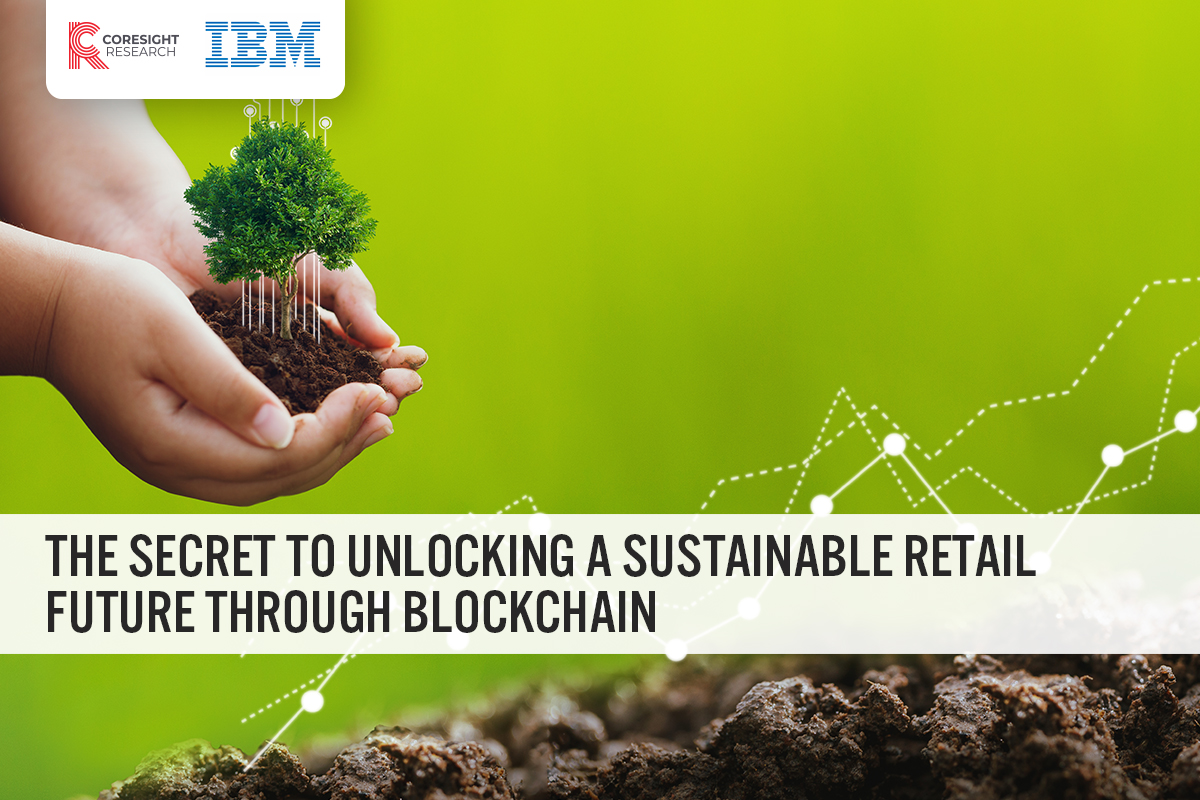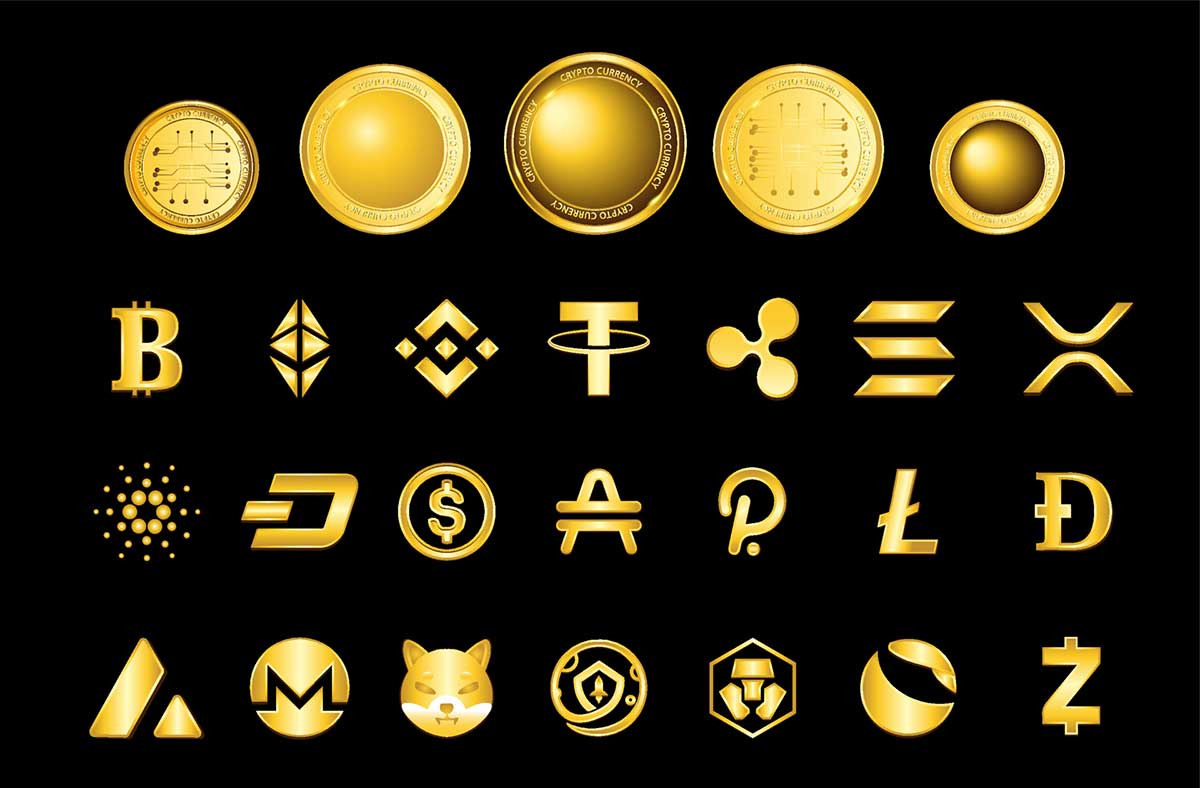How Can Blockchain Features Revolutionize Sustainability Efforts?
Blockchain features support sustainability efforts by providing transparency, traceability, immutability, and decentralized governance. These features enable accurate tracking of supply chains, ensuring ethical practices and reducing environmental impact.
Blockchain’s decentralized nature eliminates the need for intermediaries, lowering costs and enhancing efficiency in sustainable initiatives. With immutable records, stakeholders can verify claims and certifications, ensuring credibility in sustainability efforts. By leveraging these features, organizations can enhance trust, accountability, and collaboration, driving positive social and environmental impacts for a sustainable future.
As businesses and societies worldwide recognize the urgent need for sustainable practices, blockchain technology holds significant promise in supporting these efforts. Blockchain, a decentralized and transparent digital ledger system, offers unique features that can enhance sustainability initiatives across various industries. This article explores how blockchain features, including transparency, traceability, immutability, and decentralized governance, can support sustainability efforts. Through these features, blockchain technology enables accurate tracking of supply chains, ensures ethical practices, reduces environmental impact, and enhances trust and collaboration within sustainability initiatives. By leveraging the benefits of blockchain, organizations can drive positive social and environmental impacts, paving the way for a more sustainable future.

Credit: coresight.com
Understanding Blockchain Technology
Blockchain technology has gained significant attention in recent years due to its potential to revolutionize various industries, including sustainability efforts. But what exactly is blockchain, and how does it support these endeavors? In this section, we will explore the key features of blockchain and its role in promoting sustainability.
Let’s delve into the world of blockchain technology.
Define Blockchain And Its Fundamental Features
- Blockchain is a decentralized digital ledger that records and validates transactions across multiple computers or nodes.
- It consists of a chain of blocks, where each block contains a set of transactions.
- Each transaction is encrypted and permanently stored within the block, creating an unchangeable and transparent record.
- The fundamental features of blockchain include decentralization, transparency, and immutability.
Discuss The Decentralized Nature Of Blockchain
- Unlike traditional central authorities, blockchain operates on a decentralized network of computers.
- Each participant or node in the network has a copy of the entire blockchain, making it highly resilient to tampering or fraud.
- Decentralization eliminates the need for intermediaries, resulting in cost reduction and increased efficiency.
- It also ensures that no single entity has control over the data or the entire blockchain network.
Explain How Blockchain Ensures Transparency And Trust
- Transparency is a key attribute of blockchain as all transactions are visible to every participant on the network.
- Each transaction added to the blockchain is verified by multiple nodes through a consensus mechanism.
- This verification process ensures the authenticity and accuracy of the transaction data, making it highly trustworthy.
- The transparency provided by blockchain enhances accountability and enables stakeholders to track the movement of goods and funds.
Summarize The Section
Blockchain technology offers several features that support sustainability efforts. Its decentralized nature eliminates the need for intermediaries, reducing costs and increasing efficiency. The transparency and trust provided by blockchain ensure accountability and enable stakeholders to engage in sustainable practices. Now that we have a better understanding of blockchain, let’s explore how it specifically supports sustainability initiatives.
The Role Of Blockchain In Revolutionizing Sustainability Efforts
In today’s world, where sustainability is becoming increasingly important, blockchain technology has emerged as a powerful tool to address various challenges. Blockchain’s decentralized and transparent nature provides opportunities for organizations to track, trace, and verify sustainability efforts throughout supply chains.
Let’s delve into how blockchain can support sustainability initiatives by highlighting its potential, exploring its role in facilitating transparent supply chains, and discussing its use in ensuring traceability and authenticity of products.
Highlight The Potential Of Blockchain In Addressing Sustainability Challenges
- Blockchain technology has the potential to revolutionize sustainability efforts by providing a decentralized system that ensures trust, transparency, and accountability.
- With blockchain, organizations can securely record and track transactions related to sustainability initiatives, such as carbon footprint reduction, renewable energy generation, and waste management.
- The immutability of blockchain ensures that sustainability data cannot be tampered with, promoting transparency and eliminating the risk of fraud.
- By leveraging blockchain in sustainability efforts, organizations can enhance stakeholder trust and promote sustainable practices across industries.
Explore How Blockchain Can Facilitate Transparent Supply Chains
- Blockchain enables the creation of transparent supply chains by providing a decentralized ledger that records every transaction, making it accessible to all participants in the network.
- Through blockchain, supply chain stakeholders can easily trace the origin of raw materials, track their movement throughout the supply chain, and verify the authenticity and ethical sourcing of products.
- This transparency promotes sustainability by discouraging unethical practices, such as deforestation, child labor, and illegal fishing, as they become easily traceable and accountable.
- Blockchain also facilitates the sharing of sustainability-related information between supply chain partners, fostering collaboration and encouraging the adoption of sustainable practices.
Discuss The Use Of Blockchain To Ensure Traceability And Authenticity Of Products
- Blockchain technology can be utilized to ensure the traceability and authenticity of products, promoting sustainability efforts.
- Each stage of a product’s lifecycle, from sourcing raw materials to manufacturing and distribution, can be recorded on the blockchain, creating an immutable and transparent history.
- Consumers can verify the authenticity of a product by accessing the blockchain and verifying the recorded information, ensuring that the product aligns with their sustainability values.
- Blockchain can also enable the tracking of products’ carbon footprints, allowing consumers to make informed choices and support companies that prioritize sustainability.
- The use of blockchain in product traceability and authenticity enhances consumer trust and encourages businesses to adopt sustainable and responsible practices.
Blockchain technology holds immense potential to support sustainability initiatives. Its transparency, security, and decentralized nature can revolutionize how organizations address sustainability challenges. By leveraging blockchain, we can create transparent supply chains, promote sustainability practices, and ensure the authenticity and traceability of products.
Embracing this technology can pave the way for a more sustainable future.
Reducing Carbon Footprint With Blockchain
Blockchain technology has revolutionized multiple industries, and its potential for supporting sustainability efforts should not be overlooked. One particularly significant aspect is its ability to reduce carbon footprint. By leveraging blockchain, organizations and individuals can enhance energy management and conservation, enable peer-to-peer energy trading, and incentivize sustainable practices.
Let’s delve into each of these points to understand how blockchain can contribute to a greener future.
Explain How Blockchain Can Enhance Energy Management And Conservation
- Blockchain technology facilitates the integration of internet of things (iot) devices, enabling real-time data collection on energy consumption and production.
- By recording and tracking energy usage on a blockchain, individuals and organizations gain better insights into their energy consumption patterns.
- Smart contracts can be implemented to automate energy management, optimizing energy usage in real time and reducing wastage.
- Transparent and tamper-proof energy data on the blockchain ensures accountability and empowers consumers to make informed decisions about energy usage.
- Blockchain-powered energy management systems hold the potential to create a more resilient and efficient energy grid by balancing supply and demand dynamically.
Discuss The Concept Of Peer-To-Peer Energy Trading Using Blockchain
- Blockchain enables direct peer-to-peer energy trading, eliminating the need for intermediaries and enabling consumers to buy and sell energy from one another.
- Through decentralized energy trading platforms powered by blockchain, surplus energy generated by households or businesses can be shared and sold to those in need.
- Smart contracts facilitate secure and automated transactions, ensuring transparency and trust between energy producers and consumers.
- Peer-to-peer energy trading encourages the use of decentralized renewable energy sources and fosters the growth of local energy communities.
- By enabling individuals to monetize their excess energy and reducing transmission losses, blockchain-based energy trading helps promote a more sustainable and localized energy ecosystem.
Highlight The Potential Of Blockchain In Incentivizing Sustainable Practices
- Blockchain can incentivize sustainable practices by offering tokenized rewards for eco-friendly behaviors, such as reducing carbon emissions or using renewable energy sources.
- Smart contracts can automatically trigger rewards when specific sustainability goals are achieved, creating a self-enforcing system that encourages positive environmental actions.
- With blockchain’s transparent and immutable nature, consumers can be confident that their sustainable actions are accurately measured and fairly rewarded.
- Blockchain-based reward systems can span multiple sectors, incentivizing sustainable practices not only in energy but also in transportation, waste management, and other industries.
- By aligning financial incentives with sustainability efforts, blockchain encourages individuals and organizations to actively participate in building a greener future.
Blockchain technology has the potential to transform sustainability efforts by reducing carbon footprint through enhanced energy management, enabling peer-to-peer energy trading, and incentivizing sustainable practices. By embracing blockchain, we can unlock new opportunities for a more efficient, decentralized, and eco-friendly world.
Enhancing Waste Management Through Blockchain
Blockchain technology has the potential to revolutionize various industries, including sustainability efforts. One area where blockchain can have a significant impact is waste management. By leveraging the features of blockchain, waste tracking and recycling processes can be enhanced, creating a more efficient and transparent system.
In this section, we will explore the ways in which blockchain can improve waste management.
Explore How Blockchain Can Improve Waste Tracking And Recycling Processes
- Blockchain provides a decentralized and immutable ledger that can securely record information about waste generation, collection, and disposal.
- By utilizing blockchain, every transaction related to waste management can be automatically recorded and verified, ensuring transparency and trust among all stakeholders.
- Through the use of internet of things (iot) devices, data on waste generation and movement can be stored on the blockchain, providing real-time visibility and traceability.
- The transparent nature of blockchain can help prevent fraud and illegal activities in waste management, making the process more accountable and efficient.
- Smart contracts can be integrated into the blockchain network, automating various tasks and ensuring compliance with regulations and waste management policies.
Discuss The Use Of Smart Contracts In Creating Recycling Incentives
- Smart contracts can enable the creation of recycling incentives by automating the verification and reward process.
- When individuals or businesses recycle waste materials, smart contracts can automatically validate the transaction, calculate the value of the recycling efforts, and provide incentives in the form of tokens, discounts, or rewards.
- By linking recycling activities to a blockchain-based rewards system, individuals are incentivized to recycle more, leading to increased recycling rates and a reduction in waste.
- The use of smart contracts also eliminates the need for intermediaries, reducing costs and improving the efficiency of recycling programs.
Highlight The Potential Of Blockchain In Reducing Waste And Promoting Circular Economy
- Blockchain technology can facilitate the tracking and tracing of waste materials throughout their lifecycle, enabling better management and efficient resource allocation.
- By providing visibility into the origin, composition, and movement of waste, blockchain can help identify opportunities for waste reduction and recycling.
- The decentralized nature of blockchain allows for collaboration and coordination among different stakeholders in the waste management ecosystem, leading to the development of innovative solutions and partnerships.
- Blockchain can enable the creation of decentralized marketplaces for trading recycled materials, promoting a circular economy where waste is seen as a valuable resource.
- Through blockchain-enabled supply chains, waste can be transformed into new products, reducing the dependence on virgin resources and minimizing environmental impact.
Blockchain technology holds immense potential in revolutionizing waste management and promoting sustainability efforts. By improving waste tracking and recycling processes, creating recycling incentives through smart contracts, and promoting a circular economy, blockchain can contribute to reducing waste and conserving resources.
The transparency, efficiency, and accountability provided by blockchain make it a promising solution for the future of waste management.
Blockchain For Sustainable Agriculture
Blockchain technology has garnered significant attention in recent years for its potential to revolutionize various industries. One area where blockchain can make a real impact is in supporting sustainability efforts, particularly in the realm of agriculture. By utilizing blockchain, the food industry can enhance transparency, verify organic and fair-trade certifications, and promote sustainable farming practices.
Let’s explore how the features of blockchain can bring about positive change in sustainable agriculture.
Explain How Blockchain Can Enhance Transparency In The Food Industry
Blockchain offers a decentralized and immutable digital ledger that can enhance transparency in the complex food supply chain. Here are some key aspects of how blockchain can achieve this:
- Supply chain traceability: Through blockchain technology, each step of the agricultural supply chain can be recorded and tracked in a transparent manner. This enables consumers to access real-time information about the origin, quality, and journey of their food, fostering trust and promoting sustainable practices.
- Provenance verification: Blockchain allows for the verification of product authenticity, preventing fraud and counterfeiting. By providing a secure record of transactions and certifications, blockchain empowers consumers to make informed decisions about the sustainability and ethical practices of the products they purchase.
- Quality control: With blockchain, the food industry can ensure that quality standards are maintained throughout the supply chain. By recording and monitoring parameters such as temperature, humidity, and handling processes, blockchain can improve food safety and reduce waste.
Discuss The Use Of Blockchain In Verifying Organic And Fair-Trade Certifications
Blockchain technology can revolutionize the verification process for organic and fair-trade certifications, ensuring the credibility and integrity of these labels. Here’s how blockchain can enable this:
- Immutable records: By storing certification data on a blockchain, it becomes virtually impossible to manipulate or tamper with the records. This increases trust and confidence in organic and fair-trade certifications, mitigating the risk of fraudulent claims.
- Real-time verification: With blockchain, consumers and stakeholders can instantly access information about the certification status of a particular product. This eliminates the need for reliance on slow and manual verification processes, making it easier to support sustainable agricultural practices.
- Increased efficiency: Blockchain streamlines the certification process by providing a secure and accessible platform for all parties involved. This reduces administrative burdens, speeds up the verification process, and encourages more farmers and producers to adopt sustainable practices.
Highlight The Potential Of Blockchain In Promoting Sustainable Farming Practices
Blockchain technology holds immense potential in promoting and incentivizing sustainable farming practices. Consider the following benefits:
- Smart contracts: Blockchain can facilitate the use of smart contracts, which are self-executing agreements that automatically trigger actions when specified conditions are met. By incorporating sustainability criteria into smart contracts, farmers can receive incentives or rewards for implementing eco-friendly practices.
- Data-driven decision-making: With blockchain, farmers can collect and analyze data related to their farming practices. This information can then be utilized to identify areas for improvement, optimize resource allocation, and adopt more sustainable farming techniques.
- Collaboration and knowledge-sharing: Blockchain allows for secure and transparent sharing of data across agriculture networks. This enables farmers, researchers, and experts to collaborate and exchange best practices, leading to collective learning and the adoption of sustainable farming methods on a wider scale.
Blockchain technology offers a range of features that can support sustainability efforts in the agricultural sector. By enhancing transparency, verifying certifications, and promoting sustainable practices, blockchain has the potential to revolutionize sustainable agriculture and foster a more transparent and ethical food industry.
Overcoming Challenges And Adoption Barriers
Address The Challenges And Limitations Of Implementing Blockchain In Sustainability Efforts
Implementing blockchain in sustainability efforts can be a challenging task due to various limitations. However, understanding these challenges is crucial to finding effective solutions and harnessing the full potential of blockchain technology. Here are some key points to consider:
- Lack of awareness and understanding: One of the primary challenges in adopting blockchain for sustainability efforts is the limited understanding of its capabilities. Many organizations and individuals are not aware of how blockchain can contribute to sustainability or the specific applications it offers.
- Scalability issues: Blockchain technology faces scalability limitations, especially in terms of processing speed and transaction capacity. This can hinder its widespread adoption in large-scale sustainability initiatives that require significant data processing and storage capabilities.
- Energy consumption: While blockchain has the potential to support sustainability efforts, it is not without its environmental impact. The energy-intensive nature of blockchain technologies, particularly proof-of-work consensus algorithms, raises concerns about their carbon footprint, especially if not powered by renewable energy sources.
Discuss Potential Solutions And Strategies For Overcoming These Challenges
Despite the challenges, there are strategies and potential solutions that can be employed to overcome the limitations of implementing blockchain in sustainability efforts. Consider the following:
- Education and awareness initiatives: Increasing awareness about the benefits and potential applications of blockchain in sustainability is crucial. Organizations, governments, and industry leaders should invest in educational campaigns and workshops to foster a better understanding of blockchain technology among stakeholders.
- Research and development: Continuous research and development efforts are vital to improving blockchain scalability and enhancing its energy efficiency. Innovations such as layer two scaling solutions, proof-of-stake consensus algorithms, and energy-efficient mining processes can contribute to addressing these limitations.
- Collaboration and partnerships: Collaboration between blockchain solution providers, sustainability-focused organizations, and industry leaders can help drive innovation and create tailored solutions for specific sustainability challenges. Partnerships can lead to the development of scalable blockchain applications and facilitate the integration of blockchain into existing sustainability frameworks.
Highlight Successful Case Studies And Real-World Examples Of Blockchain Integration
Real-world examples of blockchain integration in sustainability efforts serve as inspirational stories, showcasing the potential benefits and effectiveness of this technology. Here are a few notable case studies:
- The energy web foundation: The energy web foundation leverages blockchain technology to create a decentralized, digital infrastructure for the energy sector. Their open-source software platform enables the traceability and certification of renewable energy sources, streamlining the process of trading renewable energy certificates.
- Provenance: Provenance is a blockchain-powered platform that focuses on supply chain transparency and sustainability. It allows consumers to track and verify the origin, authenticity, and sustainability claims of products, fostering more responsible consumption and reducing greenwashing.
- Plastic bank: Plastic bank tackles both environmental and social issues by developing blockchain-based solutions to incentivize the collection and recycling of plastic waste in developing countries. Through their platform, individuals can exchange collected plastic for digital tokens, empowering local communities and promoting a circular economy.
These case studies demonstrate the successful integration of blockchain technology in sustainability efforts, highlighting its potential to drive positive change and address pressing environmental and social challenges.
Frequently Asked Questions Of How Can Features Of Blockchain Support Sustainability Efforts
How Can Blockchain Help In Supporting Sustainability Efforts?
Blockchain technology has the potential to revolutionize sustainability efforts by ensuring transparency, accountability, and traceability in supply chains.
Can Blockchain Be Used To Track And Verify Sustainable Practices?
Yes, blockchain can be utilized to track and verify sustainable practices, enabling companies to provide evidence of their commitment to environmental and social responsibility.
What Impact Can Blockchain Have On Renewable Energy?
Blockchain can facilitate the efficient and transparent trading of renewable energy, enabling peer-to-peer transactions and promoting the adoption of clean energy sources.
How Does Blockchain Enhance Transparency In Sustainable Supply Chains?
Blockchain enables all participants in the supply chain to have real-time access to information, promoting transparency and preventing unethical practices like greenwashing.
Is Blockchain Technology Secure Enough For Sustainability Initiatives?
Blockchain’s decentralized and tamper-proof nature makes it highly secure, providing a robust framework for sustainability initiatives that require trust, accountability, and data integrity.
Conclusion
The features of blockchain technology have great potential in supporting sustainability efforts. By providing transparent and immutable ledgers, blockchain can enhance supply chain transparency, reduce fraud, and enable traceability of products. This can empower consumers to make informed choices about environmentally friendly products, and encourage companies to adopt sustainable practices.
The decentralized nature of blockchain allows for distributed energy systems, fostering renewable energy generation and reducing reliance on fossil fuels. Furthermore, smart contracts can automate sustainability actions, promoting green initiatives and reducing administrative overheads. However, the adoption of blockchain in sustainability efforts should be supported by proper education, collaboration, and regulation to ensure its efficacy and ethical use.
Overall, blockchain has the capacity to revolutionize the way we approach sustainability, making it a crucial technology in building a greener and more sustainable future.







